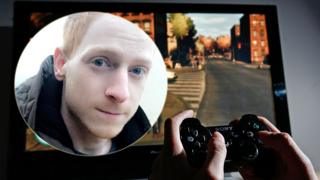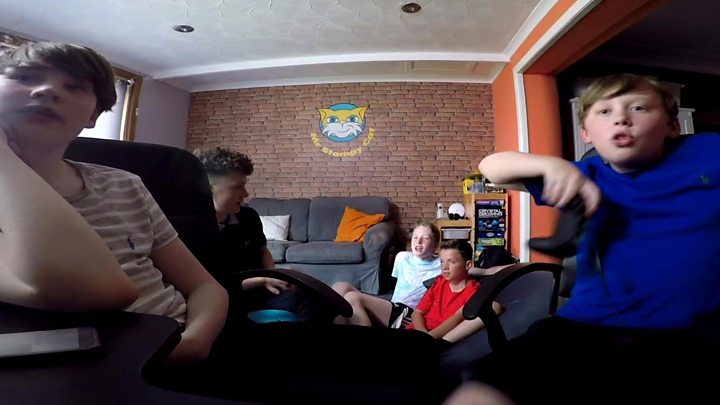‘My gaming addiction stops me from having relationships’
James Wisniewski accepts gaming addiction has a negative impact on his life – but he can’t stop. …

 Image copyright James Wisniewski/Getty Images
Image copyright James Wisniewski/Getty Images “I can be gaming for anything like six to 14 hours on any day.”
“It’s the priority of my life – I wake up and think about it, I go to bed and think about it,” James Wisniewski, 28, tells Radio 1 Newsbeat.
He says gaming “consumes” him and stops him from dating anyone seriously.
“I don’t want a relationship. Unless it’s with someone who wants to sit and play video games with me the whole time, I just don’t do it.”
James, who lives in Pembroke in Wales, says he finds it hard to give potential partners his full attention because he’s constantly thinking about “going home and playing a game”.
He says he spends “an unhealthy amount of time online and glued to monitors” and believes he could be addicted.
“I’ve never really bothered to fight it because it makes me feel good.”
The World Heath Organization updated its guidelines to include “gaming disorder” as a mental health condition in 2018.
It defines it as a pattern of problematic or compulsive behaviour where the user prioritises gaming over all other activities, despite the negative consequences it might have on their health and life.
James says playing games is a mood influencer.
“When you put so much time and dedication into something – it massively affects your mood.”
When he’s winning he says he experiences “a right high” but when his luck turns then his mood drops and arguments become more likely.
“The other day I was playing with my mates and I absolutely snapped – I threw my controller across the room and broke the charging wire.”
The physical cost
James says there is a physical toll to playing – but it’s the “potential of that wow moment” which keeps him playing – even when he’s exhausted.
“I’ll start playing at 6:30pm and go on until 1am in the morning.”
“I don’t sleep enough because of it.”
James’s job requires driving and when he gets home he starts playing games – meaning he is “constantly sat down”.
He says his “back is in pieces” and causes him pain when he moves.

Media playback is unsupported on your device
James says it’s important to help people like him whose social lives have suffered as a result of their gaming obsession to achieve “a healthy balanced life”.
He knows that for him to make a change to his gaming habits will take “willpower and strength”.
It’s why he believes the NHS opening its first gambling addiction clinic is a move in the right direction.
“To help teenagers and people with gaming addiction, I think that’s a massive step forward.”
As an addicted gamer, James also thinks that companies could do more to help gamers improve their habits.
Better habits
As of June 2018, there are 2,261 active games companies in the UK, according to Ukie – the trade body for the UK’s games and interactive entertainment industry.
A Ukie spokesperson told Newsbeat that they encourage “safe and sensible playing practices – such as encouraging regular breaks, offering robust parental controls to limit play time and recommending games as part of a balanced lifestyle – to ensure a healthy approach to play.”
“Video games are played healthily by millions of people across the UK every day. And the video games industry takes the health and wellbeing of all players seriously, especially children.”
“The industry encourages those individuals to ask for help, both inside game communities and outside, to re-establish a healthy relationship with play.”
Follow Newsbeat on Instagram, Facebook, Twitter and YouTube.
Listen to Newsbeat live at 12:45 and 17:45 weekdays – or listen back here.




